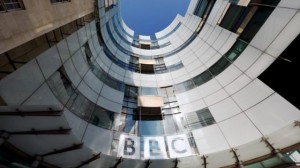
After more than 40 years of operation, DTVE is closing its doors and our website will no longer be updated daily. Thank you for all of your support.
Ofcom to set UK originals quotas for BBC
 The BBC’s new regulator, Ofcom, will demand the UK’s pubcaster produces a minimum number of British-created series for its key channels every year.
The BBC’s new regulator, Ofcom, will demand the UK’s pubcaster produces a minimum number of British-created series for its key channels every year.
In its ‘draft operating licence’, which sets out new rules for the BBC, Ofcom revealed it is planning to set quotas for BBC One, BBC Two, CBeebies and CBBC.
Ofcom claimed spending on new UK commissioned programmes fell 30% between 2014 and 2015. “Therefore, we are proposing quotas,” it noted.
The plans would see three quarters of all programme hours on the BBC’s most popular channels playing original productions. This should rise to 90% during peak time (6pm-10.30pm), which is the current level at BBC One.
This comes just ahead of sweeping changes at the BBC’s production division, BBC Studios, in April. These will see the BBC scrapping in-house production quotas and opening all possible commissions to indies and rivals, and also allow BBC Studios to produce for third-party broadcasters.
Ofcom said it has carried out “in-depth” audience research in determine what the BBC should focus on when monitoring of the broadcaster switches from current incumbent, the BBC Trust, on April 3.
A new unitary board, announced recently, will govern and run the BBC.
“We expect the BBC to focus on the things audiences have told us they value most,” it added. “These include news, children’s programming, and programmes made specifically for UK audiences, which reflect the full diversity of the UK.
“In some cases, where the BBC has exceeded its previous to raise these requirements closer to the BBC’s current performance – providing safeguards to ensure the BBC’s performance does not fall below what’s acceptable in future.”
On the kids front, the new rules dictate CBBC shoes at least 400 hours of new UK-commissioned programmes per year, with CBeebies showing 100 hours.
There should also be preschool content that supports learning.
Other rules include directives on better reflecting UK regions, news programming, “distinctive” sports coverage, and “tougher requirements for showing arts, music and religious programmes” on BBC One and BBC Two.
Ofcom plans to monitor the BBC though annual performance reviews, and hold a ‘health check’ halfway through the current 11-year Charter agreement.
All rules apply to the BBC iPlayer for the first time, as well.
Ofcom has launched a consultation on its licence plan today, and this closes on July 17. A final framework is due by the autumn.


